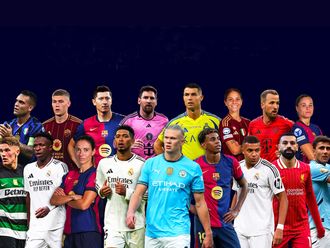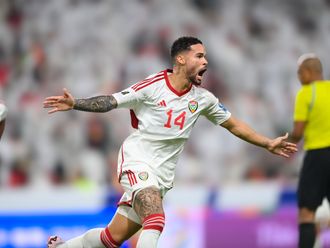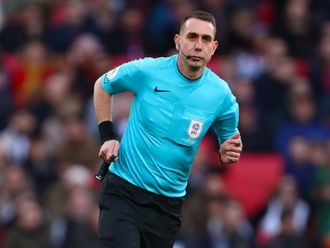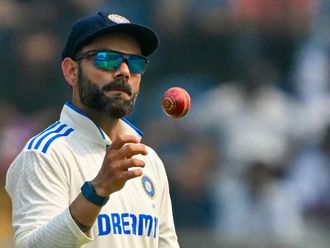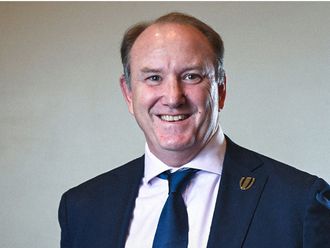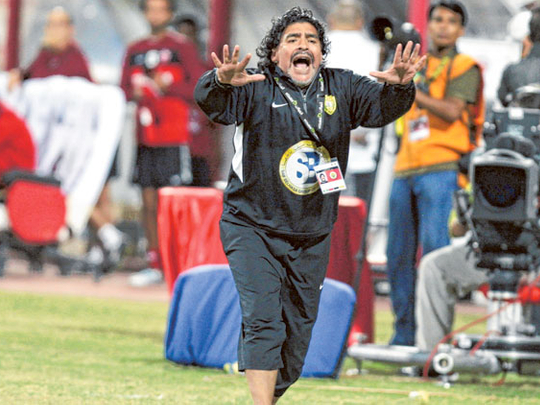
Dubai: It’s the mark of a man and a nation’s love for him, that even after a largely unsuccessful spell in football management here in the UAE, Diego Maradona has still been welcomed back with open arms.
Following his Al Wasl sacking in July after the club finished in eighth position — their worst UAE Pro League finish in seven years last season — the 1986 World Cup winner was still made Dubai Sports Council ambassador, considered for the UAE national team post and even linked back to Al Wasl when his vacancy re-occurred.
Now from Boca’s La Bombonera to Napoli’s Stadio San Paulo, Maradona’s name is just as synonymous with Dubai, Al Wasl and the UAE, and neither appears to want that affiliation to end anytime soon.
When many had given up on the legend for a past that has made him as unpredictable as it has iconic, the UAE provided opportunity, escape and a second chance. They took a risk in a figure of controversy and contradiction just after he had failed to manage hotly-tipped Argentina beyond the quarter-finals of the 2010 World Cup.
It had been the final blow to his already questionable coaching career, which up until that point had only seen him manage Argentine clubs; Mandiyu de Corrientes and Racing Club de Avalleneda, for no longer than a few months in the mid-nineties.
As many suspected his Al Wasl tenure was to be just as unfruitful, finishing eighth in the league and reaching the semi-finals of the Etisalat Cup, quarters of the Presidents Cup and ending as runners-up in the GCC Champions League final. He was sacked midway into his two-year contract.
In the usual cut-and-dry world of football management that would have normally have spelt the end for Diego, but the results of Maradona-mania spoke for themselves.
At the half-season mark, former chairman Marwan Bin Bayat announced a 100 per cent increase in gate receipts, marketing profits of Dh10 million and a return on investment of Dh17 million. This total Dh27 million halfway through a season would project at least Dh54 million returns from Maradona’s full season, which given his salary was refuted to have been between $10 million (Dh36.7 million) and $34.5 million, would supposedly leave the club in good stead.
On top of this, the club announced free global exposure from Maradona’s tenure worth Dh333 million, if they had to pay for it. This exposure was also a 1,600 per cent up on coverage the year before Maradona joined and Dubai and the UAE were mentioned in 64.5 per cent of the 14,657 articles.
A much more tangible calculation of Maradona’s worth, however, was that of his many social and humanitarian visits; not least to the father of Bani Yas player Diab Awana upon his son’s passing in a car accident, or to Bruno Metsu, his coaching successor at Al Wasl, who has been diagnosed with cancer. Then, there were the visits to prison football tournaments and schools for children with learning disabilities — the result of which was priceless.
Through failure and acceptance, one discovered that Maradona was human just like us, no matter how high a pedestal he had been put upon. He had tried, failed and succeeded despite all odds, and this message to a youthful nation still emerging is in the end better than any trophy he could have won here.


